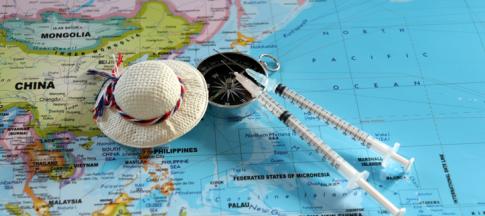
There are a few ways you can invalidate your travel insurance, leaving you unable to claim if you need to.
We’ve listed some of the most common ones below. This list isn’t exhaustive, so check your policy book for the full list of exclusions.
1. Buying travel insurance too late
When you buy travel insurance, there’s a list of assumptions you agree and one of these is that you haven’t already started your journey.
You can’t buy travel insurance after you’ve gone through customs. Read our guide on last-minute insurance.
Also, we recommend buying a single-trip policy (if you don’t have annual cover) at the same time as booking your holiday, otherwise you aren’t covered for necessary cancellations.
For example, we offer up to £5,000 cover (on Platinum) if you have to cancel your holiday because you become too ill to travel. Read more about cancellation cover.
2. Not declaring all medical conditions
You must tell your insurer if you or anyone on your policy has pre-existing medical conditions. This includes any medical conditions you’ve had within the last two years.
Make sure we know if you:
- Have had or are having advice, treatment or prescriptions from a doctor
- waiting for a diagnosis or your health is being investigated
- on a waiting list for inpatient treatment or know you need inpatient treatment
You also need to let us know if you’re diagnosed with any other condition or if your health changes in any other way after buying your insurance.
Read our guide on travelling with a medical condition.
3. Leaving your belongings unattended
Most travel insurance policies cover your belongings if lost, stolen or accidentally damaged. However, you’re not covered if you leave your valuables unprotected. For example, leaving your phone by the pool while you swim.
Your valuables either must be on you, or kept in a locked safe if you leave them in your hotel room or accommodation.
Make sure you keep all your valuables on you at the airport or on any transport. Don’t leave anything valuable in your checked baggage or vehicle, even if you think it’s out of sight.
Also, you’re not covered if you leave your luggage in a storage room in your hotel, for example, after you’ve checked out or before you’ve checked in.
4. Not filing a police report after a theft
You must file a police report or report to your transport operator within 24 hours of finding out your belongings were stolen.
We need a Crime Reference Number from the police to process your claim.
If your things were lost or stolen when in the care of your transport operator, you need to get a Property Irregularity Report from them.
5. Not keeping receipts
Keep receipts for anything you buy in an emergency that you hope to claim back on insurance. The same goes for when you buy or hire essentials to replace lost or stolen items.
For example, if you need emergency medical treatment, you must provide receipts for all travel and accommodation for you and anyone staying with you during your illness.
6. Taking part in sports or activities you’re not covered for
Don’t assume an adventure activity or sport is covered as standard. Some hazardous activities can be included as an upgrade such as winter sports, some need to be disclosed to us (you might need to pay an extra premium) and others aren’t covered.
Hazardous activities could include:
- bungee jumping
- camel riding/trekking
- go-karting
- jet skiing
Check your policy book or contact us for the complete list of activities you are and aren’t covered for.
Whether you have a policy upgrade or have disclosed the activity to us, you aren’t covered if you don’t wear the proper safety equipment like a helmet or harness.
7. Not having the correct travel documents
You must have all the correct travel documents, including a visa for some countries. If you’re unsure if you need a visa, look at the advice from the Foreign, Commonwealth and Development Office.
You also need to make sure your passport is valid before you travel. Most countries require you to have at least six months left on your passport when you travel, so check the expiry date before you travel.
If you’re turned away from your transport or destination because you haven’t got the right travel documents, you won’t be compensated by your insurer.
8. Not being properly vaccinated
Your travel insurance only covers you if you’ve done all you can to protect your health before you go away. This means you should get all the recommended vaccinations before your trip.
To check which you need and when you should have them before you travel, look at the advice from the NHS.
Read our guide on travel vaccinations here.
9. Dangerous or illegal behaviour
You could invalidate your travel insurance by taking illegal drugs, drinking too much alcohol or otherwise putting yourself in unnecessary danger.
If you’ve injured yourself or become ill from alcohol or drug abuse, you can’t claim any medical expenses on your travel insurance.
10. Working without the correct cover
You’re not covered for doing any work while on holiday. This includes any activity, including sport, with any financial reward.
The same applies to manual work, both paid and unpaid. Manual work covers anything physical, but if you’re unsure whether your plans will be covered, please get in touch.
Always check your policy book for the complete travel insurance terms and conditions.


